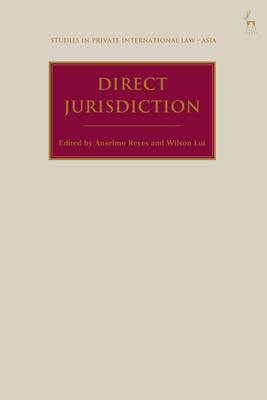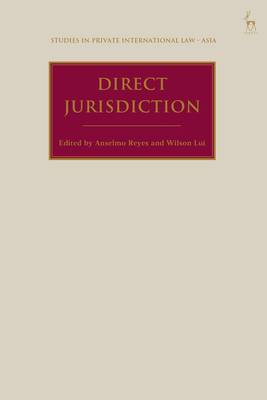
- Retrait gratuit dans votre magasin Club
- 7.000.000 titres dans notre catalogue
- Payer en toute sécurité
- Toujours un magasin près de chez vous
- Retrait gratuit dans votre magasin Club
- 7.000.0000 titres dans notre catalogue
- Payer en toute sécurité
- Toujours un magasin près de chez vous
Direct Jurisdiction
Asian Perspectives
Description
The second thematic volume in the series Studies in Private International Law - Asia looks into direct jurisdiction, that is, the situations in which the courts of 15 key Asian states (Mainland China, Hong Kong, Taiwan, Japan, South Korea, Malaysia, Singapore, Thailand, Vietnam, Cambodia, Myanmar, the Philippines, Indonesia, Sri Lanka, and India) are prepared to hear a case involving cross-border elements. For instance, where parties are habitually resident abroad and a dispute has only some, little or no connection with an Asian state, will the courts of that state accept jurisdiction and hear the case and (if so) on what conditions? More specifically, the book's chapters explore the circumstances in which different Asian states assume or decline jurisdiction not just in commercial matters, but also in other types of action (such as family, consumer and employment disputes).
The Introduction defines terminology and identifies similarities in the approaches to direct jurisdiction taken by the 15 Asian states in civil and commercial litigation. Taking its cue from this, the Conclusion assesses whether there should be a multilateral convention or soft law instrument articulating principles of direct jurisdiction for Asia. The Conclusion also discusses possible trajectories that Asian states may be taking in respect of direct jurisdiction in light of the COVID-19 pandemic and the political tensions currently besetting the world. The book suggests that enacting suitable rules of direct jurisdiction requires an Asian state to strike a delicate balance between affording certainty and protecting its nationals. At heart, direct jurisdiction involves sometimes difficult policy considerations and is not just about drawing up lists of jurisdictional grounds and exceptions to them.Spécifications
Parties prenantes
- Editeur:
Contenu
- Nombre de pages :
- 440
- Langue:
- Anglais
- Collection :
Caractéristiques
- EAN:
- 9781509936427
- Date de parution :
- 21-10-21
- Format:
- Livre relié
- Format numérique:
- Genaaid
- Dimensions :
- 170 mm x 244 mm
- Poids :
- 898 g

Les avis
Nous publions uniquement les avis qui respectent les conditions requises. Consultez nos conditions pour les avis.





